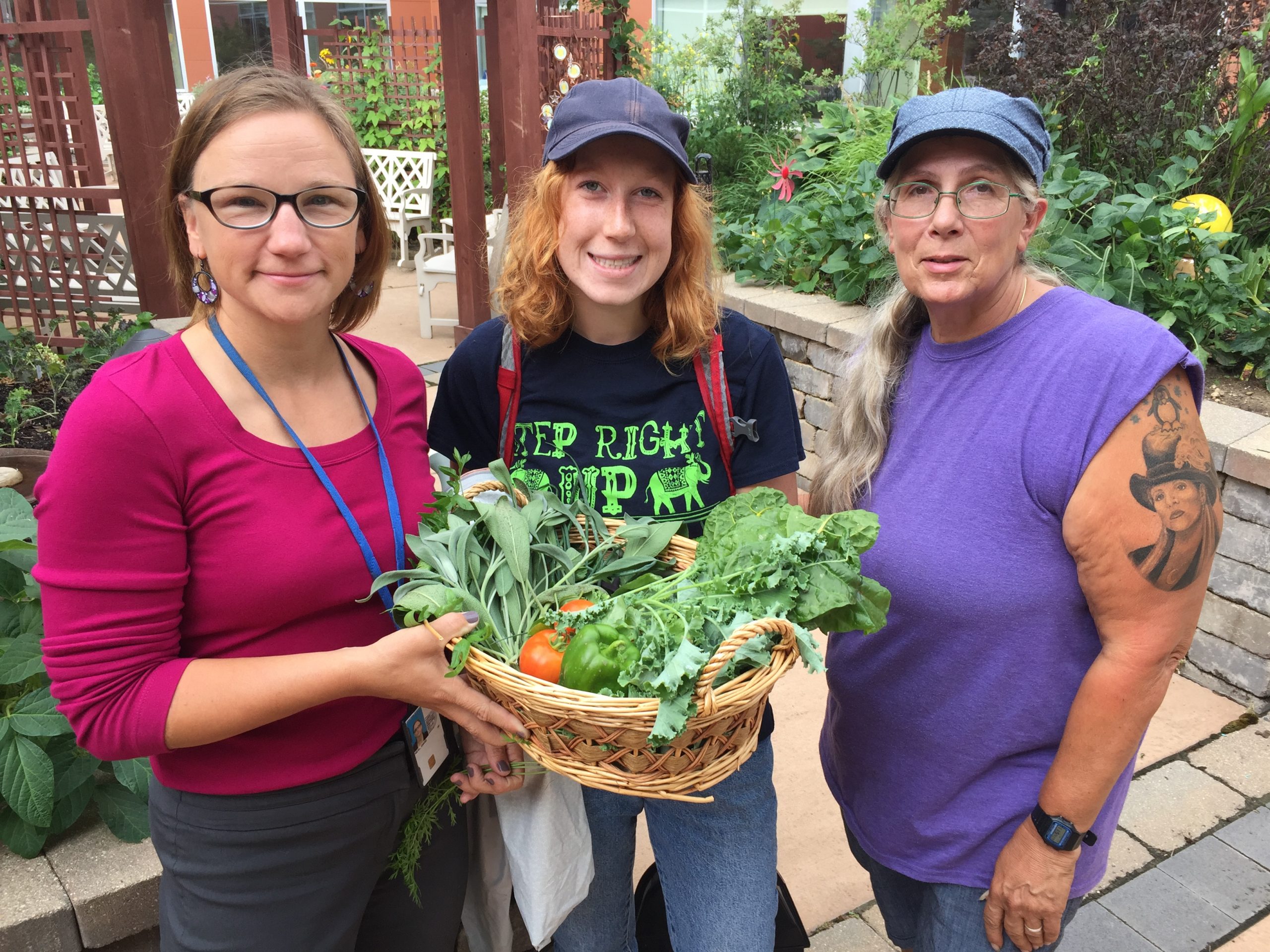Volunteering
In this section, you will be introduced to the specifics of volunteering and to the types of activities you may perform in your role as a Master Gardener Volunteer. These may involve skills that you may not be totally comfortable in performing. Don’t worry! You’ll have the opportunity to pick and choose what you want to do in the volunteer projects. You may also get the opportunity to expand and grow these skills with time and experience. You’ll also learn how many hours are required to earn and maintain your certification each year.
Everybody can be great. Because anybody can serve. You don’t have to have a college degree to serve. You don’t have to make your subject and your verb agree to serve…. You don’t have to know the second theory of thermodynamics in physics to serve. You only need a heart full of grace. A soul generated by love.
Martin Luther King, Jr.
Connecting with Your Community
Volunteering can be one of the most rewarding experiences in life and have a positive impact on your community and yourself. According to the Bureau of Labor Statistics, more than 62 million Americans volunteer annually through charitable organizations. Master Gardener Volunteers return incredible numbers of volunteer hours annually to their communities—more than 150,000 hours every year in Wisconsin alone. As a Master Gardener Volunteer you will join the Division of Extension family of volunteers, and millions of other people, by donating time and talents to Extension’s community programs and activities.
Master Gardener Volunteers follow principles and procedures created as a result of scientific study at universities and have the backing of the Extension with its faculty, research, and plant-related publications. As a volunteer, you spread university research-based knowledge to communities throughout the state in keeping with the Wisconsin Idea. Master Gardener Volunteers teach others about plants and how to grow them successfully in presentations, displays, demonstrations and other programs. As part of the university system, Master Gardener Volunteers advise people about plants and gardening practices free from commercial interests and without a sale to be made. Plants and gardening can improve our physical and mental health as well as create safer and more connected neighborhoods; you can help your community with gardening projects in parks and community gardens. Master Gardener Volunteers listen, connect people to plants, meet people where they are, and serve the needs of the community and individuals.
Master Gardener Volunteers tackle real world issues and help communities by engaging in Extension-approved projects. These projects align with community priorities and are meant to provide positive and meaningful experiences for the Master Gardener Volunteers.
Benefits of Volunteering
Aside from doing good work in your community, you will benefit in other ways from volunteering with the MG Program. For those that love gardening, you can share your passion for plants with others. Helping others on a topic you enjoy can be more rewarding than you might imagine—you can also learn from those you are educating. You can use your skills and talents in a different way and help train others. You can improve your communication, management and leadership abilities and use them in other aspects of your life. Volunteering gives you a new way to meet new people and make new friends. A part of your Master Gardener Volunteer experience, you have the continuing opportunity to learn more about plants and gardening from experts and fellow Master Gardener Volunteers.

